The Broke Backpacker is supported by you. Clicking through our links may earn us a small affiliate commission, and that's what allows us to keep producing free content 🙂 Learn more.
In the last decade, Airbnb has burst onto the travel scene and in many ways revolutionised tourism as we knew it. Soulless and boisterous hotels? Nah, now we’ve got places that we can (and want to) call our own!
Not only is an Airbnb apartment often cheaper than a hotel room, but it also allows you to save even extra cash by using the kitchen and all the other amenities (further cementing the true local experience).
Over the last 5 years, I’ve rented Airbnbs all across the world and stayed in some truly awesome and unique properties. But there is also a darker side to it…
The “Airbnb effect” on city housing markets forces long-standing tenants out of their homes, in exchange for short-term tourists that are much more profitable to landlords. And besides the housing shortages and inflated rents, there is an ever-increasing number of Airbnb scams that target unsuspecting guests.
In this post, I’m going to run you through a few of the most common Airbnb scams and teach you how you can protect your ass from them during your next vacation rental.

Unlock Our GREATEST Travel Secrets!
Sign up for our newsletter and get the best travel tips delivered right to your inbox.
Is Airbnb Safe?
Before we get started, I want to make something very clear. For the most part, Airbnb’s platform is safe. And a damn good one! Here at the Broke Backpacker, we must’ve spent thousands of nights at Airbnbs between all of us — and with very few issues.

The Broke Backpacker is supported by you. Clicking through our links may earn us a small affiliate commission, and that's what allows us to keep producing free content 🙂 Learn more.
However, there are still some characters trying to game the system and manipulate the platform for their own good, and we do have a duty to inform you. Whilst the travel scams we describe in this post are relatively rare, they do still occur.
But worry not, dear reader! Stay alert, follow our advice, and you’re sure to have an amazing Airbnb Experience. Let’s get this started.
1. The Airbnb Property Switch
This is quite possibly the most common Airbnb scam and is one that I have actually experienced first-hand. In some cases, this is also the most benign of the scams and in other cases, can be no more than an honest mistake.
This is how it goes: you find an Airbnb rental, you like it, you book it. But once you arrive at the address… you’re greeted by the host (or their representative), who tells you the property is no longer available.
They may say that it was damaged by the last guest, they may say the plumbing is broken or they may simply call for a double booking.
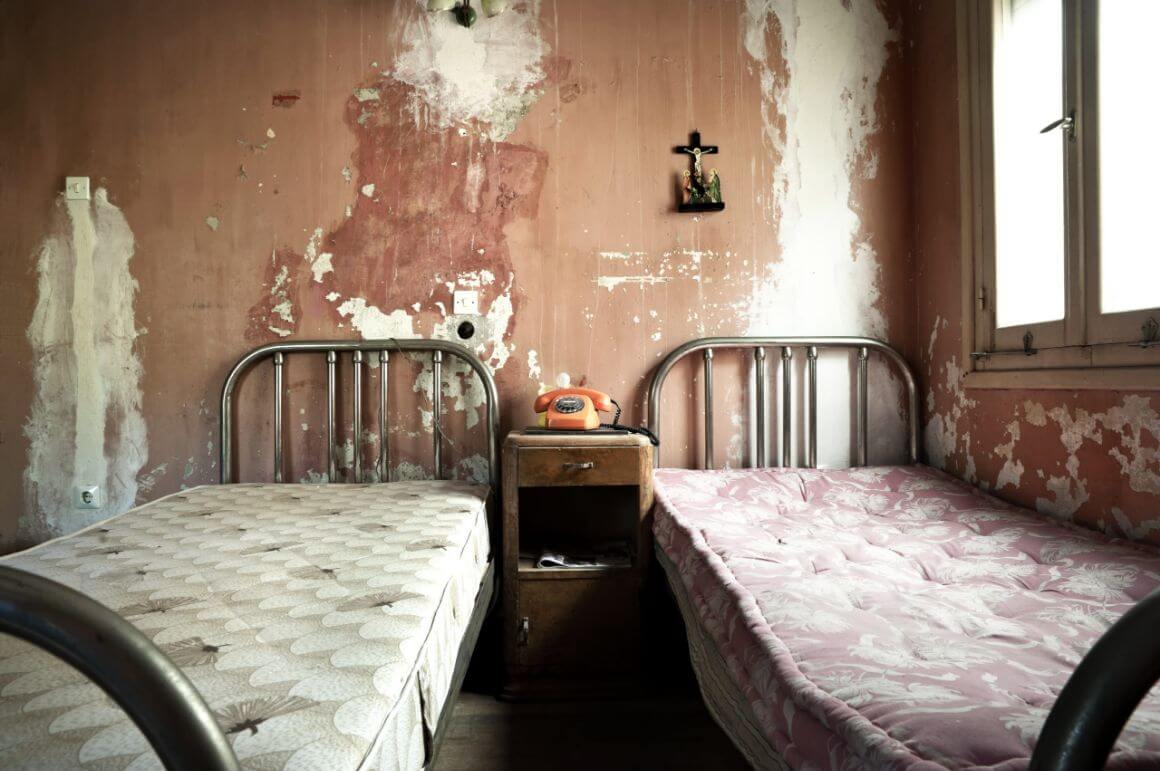
Now they offer you a different place. In a lot of cases we’ve heard about, they end up being similar and quite nearby. But in others, you could potentially end up in a shittier place in a completely different part of town. In essence, it’s a fake Airbnb listing.
If Airbnb hosts are genuine, they will tell you about the situation before you arrive and give you the chance to consider your options. If they wait for you to arrive before springing this on you, then it is almost definitely a scam — they are counting on you to be tired and agreeable.
What Should You Do?
This one was pulled on me while traveling in Delhi (the spiritual home of the original hotel swap scam). The guest house had this one really nice and photogenic room which they repeatedly listed to attract visitors before sending them to inferior rooms.
Whilst I was pissed off with the audacity of the owner, we let it slide as the room they offered us was fine — we were only staying for 12 hours anyway. Note that if you do agree to the swap, you pretty much lose all rights of redress.
If the host offers you a partial refund for the lesser quality room, get them to arrange this through the app BEFORE you take it — verbal agreements don’t mean shit in the online world.
If you find the situation completely unacceptable, contact Airbnb immediately. They have a dedicated customer support team on both the desktop site and the Airbnb app for situations like this who provide 24-hour assistance.
P.S – I heard about this one case where the host blatantly denied that the property a guest got was not the one they had booked. Despite the guest showing evidence that it was a clearly different house to the one in the pictures, the host maintained the Trumpian, ‘let’s deny bare-faced reality’, post-truth approach!
2. The Fake Images Scam
Another Airbnb scam that’s as old as the internet is the classic “fake images” scam. This is when a host will put up fake or doctored images that make the property seem SIGNIFICANTLY nicer than it is in reality.
Unfortunately, this is a common scheme and can play out in many different ways. Some of these scammers do post photos of the actual property and edit them to high heaven–essentially creating fake listings–while others will use pics of a completely different property… which you’ll only realize when you arrive with no other options.

These days, the former is more common, especially with all the varied and easy-to-use editing software out there. Camera-savvy hosts can also take things up a notch by using strange angles, photoshopped amenities, and views that definitely do not exist. Scammers may also use super old photos that show the property in its prime, but then you’ll discover the present-day reality is severely disintegrated.
What Should You Do?
Reviews, reviews, reviews! Always look for things such as “the home was exactly like the photos” or other positive comments that indicate an ideal match between the listing’s photos and reality. You can also use the search bar within the reviews for keywords like “photos” “images” or “accurate.”
To catch a scammer using completely fake photos, try a reverse Google image search to see if the too good to be true property is really a bunch of stock photos.
3. The “Pay Me Outside Airbnb” Scam
When you book an Airbnb, you pay on the platform and nowhere else. Your money actually goes to Airbnb who then holds it in abeyance and releases it to the host (minus fees) later. This keeps you protected from cancellations or other issues that may occur.
One relatively common scheme consists of hosts trying to get guests to pay them directly, either through Paypal, bank transfers, and in a few odd cases, in Bitcoin — hold your cryptocurrency, keep it away from shady hosts.

Image: Nic Hilditch-Short
Sometimes, hosts are simply trying to bypass Airbnb and avoid the hefty fees, but in other cases, it is outright foul play. There are stories of guests paying $500 over Paypal just to find out that the property was occupied — by the rightful owner who had no idea it was listed on Airbnb! Ouch.
If you do pay outside of Airbnb, they cannot and will not help you with any problems you have. If you arrive to find the property not as described, or dirty or double booked, you’re on your own.
One common variation on this theme is far less sinister but still potentially problematic. On multiple occasions, I’ve asked to extend my booking on the spot, and the host usually agrees (provided they don’t have any other guests). But they will often ask for cash rather than formalize it through Airbnb. Why? Again: fees. And possibly taxes, too. So…
What Should You Do?
When making an online Airbnb booking, pay through the platform in all cases. Never, under any circumstances, send payments outside of Airbnb. Also–be wary of a fraudulent host that asks you for a security deposit. This is just NOT a thing on the platform.
As for the second scenario, once you arrive at the property, it is up to you whether you pay for any extra nights in cash or through Airbnb. If the host offers to share the savings with you in the form of a cash discount, I can understand the temptation. But if they don’t… then fuck them.
If you pay in cash, just bear in mind that if anything goes wrong, Airbnb will not assist you as your booking will technically have ended and the extension is now a private matter between you and the host.
Of course, you also need to ask yourself whether you want to enable potential tax avoidance…
4. The “We Got A Better Offer Scam”
Have you ever had an Airbnb host cancel on you? There are many reasons why a host would need to cancel. And while most might be for good reason, others are so cynical that they’re just an outright Airbnb scam in our eyes.
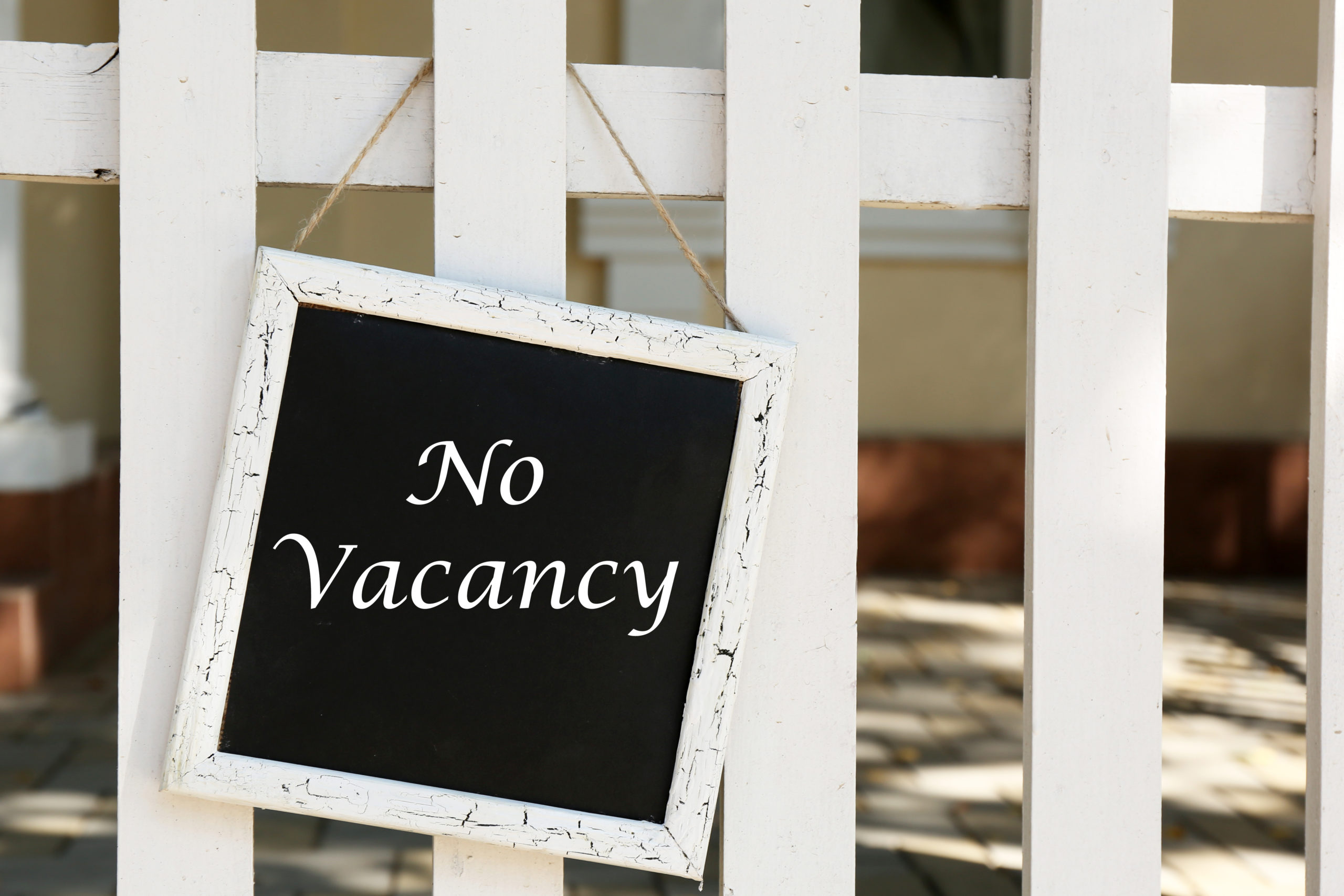
The scam works like this: they list a property as available for X amount of money and you book it well in advance. Unbeknown to you, they then re-list the property for the same dates and for a higher amount.
If somebody else books it, they’ll cancel your booking and leave you scrambling around looking for something else last minute.
Obviously, they won’t really give you a justification on this — and we only found out about it after some investigation. Strictly speaking, they shouldn’t be able to list a property on Airbnb twice and yet it happens rather a bloody lot. In other cases, they will also list it on a few other Airbnb alternatives.
What Should You Do?
Sadly, there isn’t a lot you can do here. Airbnb is very slack about this one and their policy allows hosts to cancel 3 times a year with neither reason nor inquiry. Go figure!
5. Fake Airbnb Damages
None of us at The Broke Backpacker have ever experienced this one directly, but we know some of you have.
If you’ve ever bothered to read Airbnb’s fine print during the booking process, you’ve seen that you are potentially liable for any damage caused to the property. This is designed to protect hosts from bad guests, and they bill it right to your card.
Unfortunately, this is sometimes abused by hosts who claim fake damages and try to get an extra charge out of you.

Some real-life examples from Airbnb users: One guest was stung with a $50 charge for a broken kettle which had actually been broken before she arrived. The host even apologized for it at check-in! Another billed $2,000 for carpet cleaning after alleging the guest spilled red wine in it (he stated his religion forbade him from drinking alcohol).
A twist on this Airbnb scam is overcharging for legitimate damages. I once lost a key to an Airbnb in Svalbard and was “happy” to pay the $20 replacement fee — ‘guess backpacking Norway ain’t never cheap anyway.
Had they put in a bill for $100, I would have been less impressed. Because even though Airbnb puts the onus on hosts to prove damage costs, this doesn’t stop them from getting fake invoices through their connections.
What Should You Do?
If anything is broken or damaged when you arrive, make a note for, take photos and message the host straight away.
If, however, you’re stung with a completely fabricated claim, then your only recourse is to dispute it vehemently through the resolution center. At this stage, it becomes a bit of a “he said/she said” game.
The good news is that Airbnb does have a tendency to side with guests over hosts, and may even stand disputed damages themselves to avoid bigger trouble on their side.
6. The Charging For “Extras” Scam
Sometimes, Airbnb scams can be as simple (and ridiculed) as this. Ready?
Let’s say you book an Airbnb with a kitchen. You would assume there will be plates and knives for you to use in said kitchen, right? WRONG.
Some weirder stories we’ve heard had guests arriving at check-in, and being advised that kitchen utensils can be rented for an additional fee, to be paid in cash. And even charges for toilet rolls at check-out!

This goes as far as charges for bed linen replacement, and a bunch of things that in no way make sense with Airbnb’s policy.
What Should You Do?
You should simply refuse to pay and insist that the host gives you everything you need. If a kitchen is listed on the property, then you shouldn’t have to pay for something that’s already there.
And the same goes for any amenities that are already in the house, like toilet paper. They’re meant for you to use! Unless you happen to have a particularly shitty arse, in which case you should cover any extras you buy.
It may get tense, but stand your ground and remind them that Airbnb will NOT take this kindly. In almost all cases, it is desperate opportunism and will cave in pretty quickly.
Be sure to mention the situation in your review once you check out.
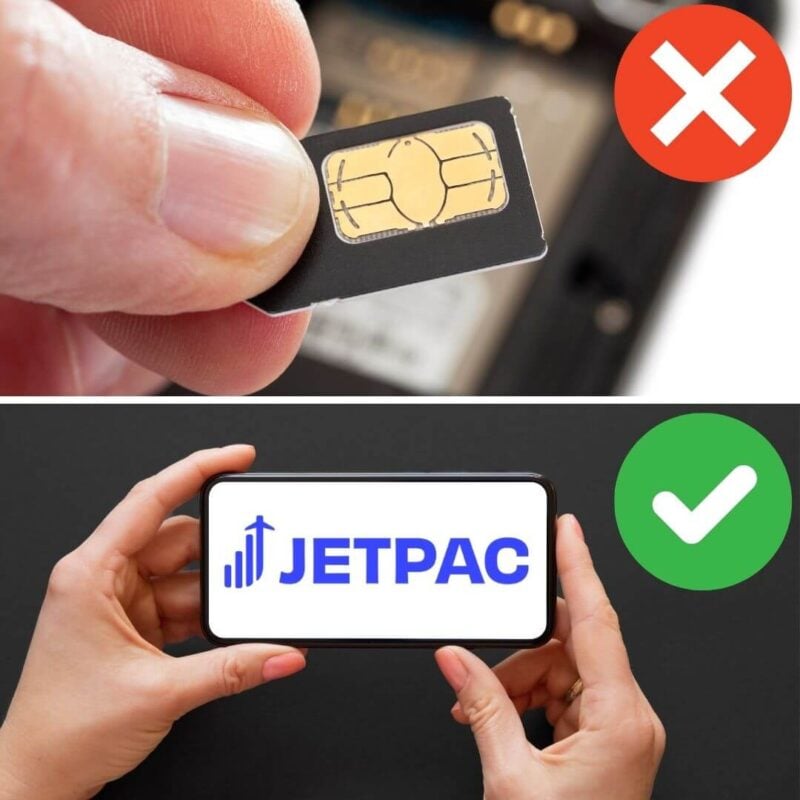
A new country, a new contract, a new piece of plastic – booooring. Instead, buy an eSIM!
Jetpac eSIMs work just like an app: you download it, pick your plan, and BOOM! You’re connected the minute you land. It’s that easy.
Read about how e-Sims work or click below to see one of the top eSIM providers on the market and ditch the plastic.
Grab an eSIM!7. The Fake Airbnb Website Scam
This next one is nothing short of ingenious in its scope and ambition. And whilst still very worrying, it’s an extremely rare Airbnb scam.
There have been cases of users making bookings and paying (hefty) fees through fake Airbnb-looking websites. And don’t be fooled, these things do look alike.
When they realize that the property is not available (usually when they turn up), they angrily claim a refund via the real Airbnb.
“Sorry, but we can’t refund you because we don’t actually see that you made any booking…”
At this point, the victim realizes they have been scammed by a criminal mastermind and that they made the booking through a fake, clone site and made the payment through a phony terminal.

The rabbit hole goes even deeper….
From the anecdotal evidence out there, it seems that the scammers are trapping people via the REAL site. They advertise a property on Airbnb, the guest initiates contact, and somewhere along the chain of communication (in the Chat or Via email) the criminal slips in a link to the fake site.
What Should You Do?
This one is extremely hard to guard against.
You should always be skeptical on the internet. Keep an eye out for anything that looks odd (whether that’s a website URL or a cheeky little detail), and always use a VPN! You gotta stay safe online.
Airbnb usually plays hardball and refuses to help guests because they’re technically not responsible for these phishing scams. Victims may allege that the perpetrator snared them via the real site, so it is actually their business in the end. If this happened to you, I wholly recommend fighting all the way and taking legal advice.
That said, a good option is to make all online payments via Credit Card as they tend to offer the best level of fraud protection and may stand the costs without any question.
8. The Fake Reviews Scam
This next one is more annoying than anything and is NOT specific to Airbnb. These days, online customer reviews are paramount and it is next to impossible to sell anything that has less than 4 stars.
Does this mean that we’re living in the golden age of standards in consumable goods, customer service and hotel rentals? The standard is not that great, it’s just easy to game the system.
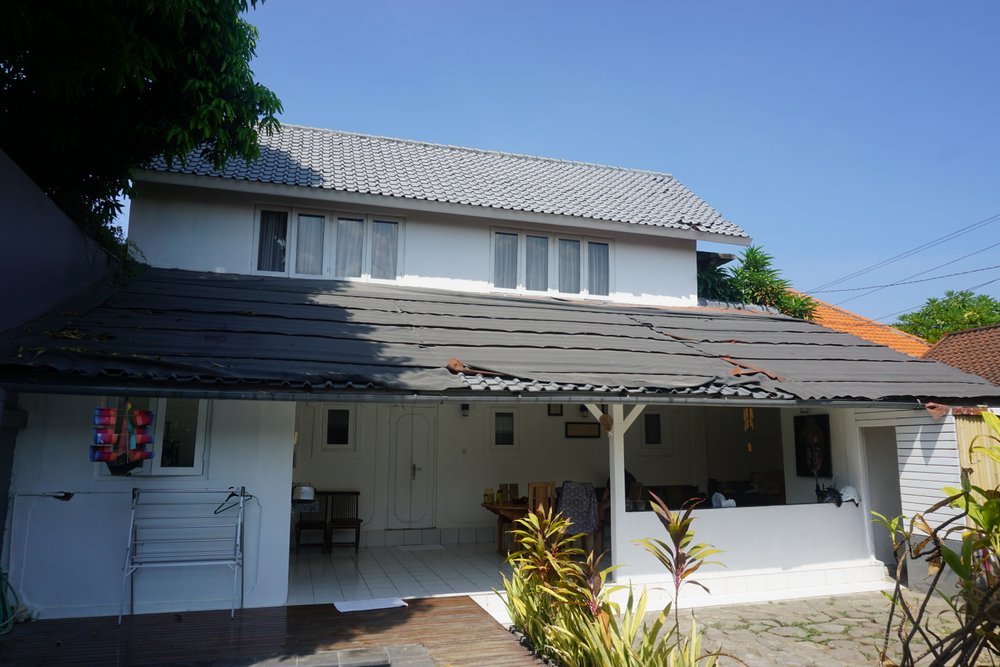
There are offices all over Asia (and in many other places) full of graduates who spend their days leaving fake reviews on Amazon, Google and pretty much anywhere they get told to.
The Airbnb scam pretty much consists of hosts getting fake, positive reviews to inflate their ratings. And while it might be harmless, it might still lead you to book an awful property due to excessively glowing reviews.
What Should You Do?
Look for properties that have lots of reviews and make sure the host’s profile is realistic. Try to analyze the way they sound and if they look authentic. Some hosts are so careless that they’ll simply copy and paste the same review over and over.
If a property has very few reviews, it may genuinely be new to Airbnb. In this case, the host might even address it in the description and give you a “new listing” discount (FYI: targeting new properties can be a great way to find cheap Airbnbs, though you do risk staying in the odd shit hole).
Whenever you leave an Airbnb review, be honest and frank. Don’t ever be intimidated or emotionally blackmailed by hosts into leaving them anything other than an honest review.
9. The Illegal Listings Scam
Once upon a time, Airbnb had virtually zero limitations. Anyone could have one in pretty much any city. Nowadays?
Not so much.
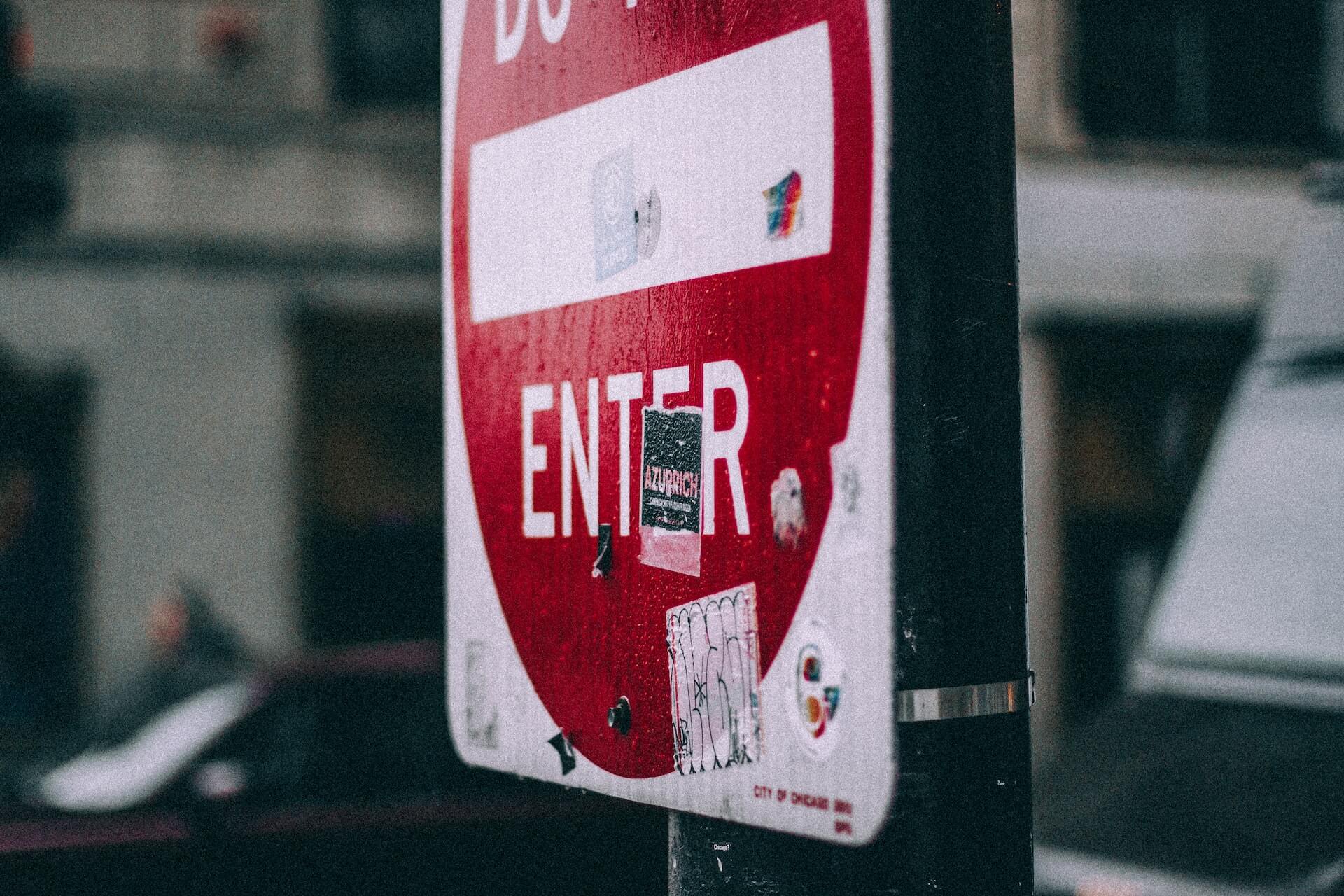
Many locales have banned Airbnbs or have put stringent restrictions on them, such as only allowing long-term stays. While most hosts are transparent about this, scammers will do everything they can to circumvent local laws.
This had led many travelers to arrive at their booking, only to be told their stay is illegal, leading to exorbitant fees for last-minute hotel bookings. And in the worst-case scenario–you might even find yourself stranded with every hotel in town booked up.
…yikes.
What Should You Do?
First up: read into local laws!
You can easily find everything you need to know about a city/neighborhood’s rules and regulations with just a bit of Googling. That makes this scam a bit harder to be victimized by with due diligence. Do keep in mind though that certain fees such as a local occupancy tax is NOT a scam and is actually mandated in many cities and countries.
Also: if you get a message from your host where they coerce you into telling a doorman or front desk that you’re “staying with a friend” or any other sketchy lie: run! There are plenty of legal Airbnbs to choose from, no need to get involved in shady BS.
10. The Hidden Cameras Scam
While this scam doesn’t have to do with booking an Airbnb, it’s certainly a very real and very disturbing scam. There are more and more horror stories of travelers showing up to their Airbnb and finding that everything is as it seems… until they discover a hidden camera.
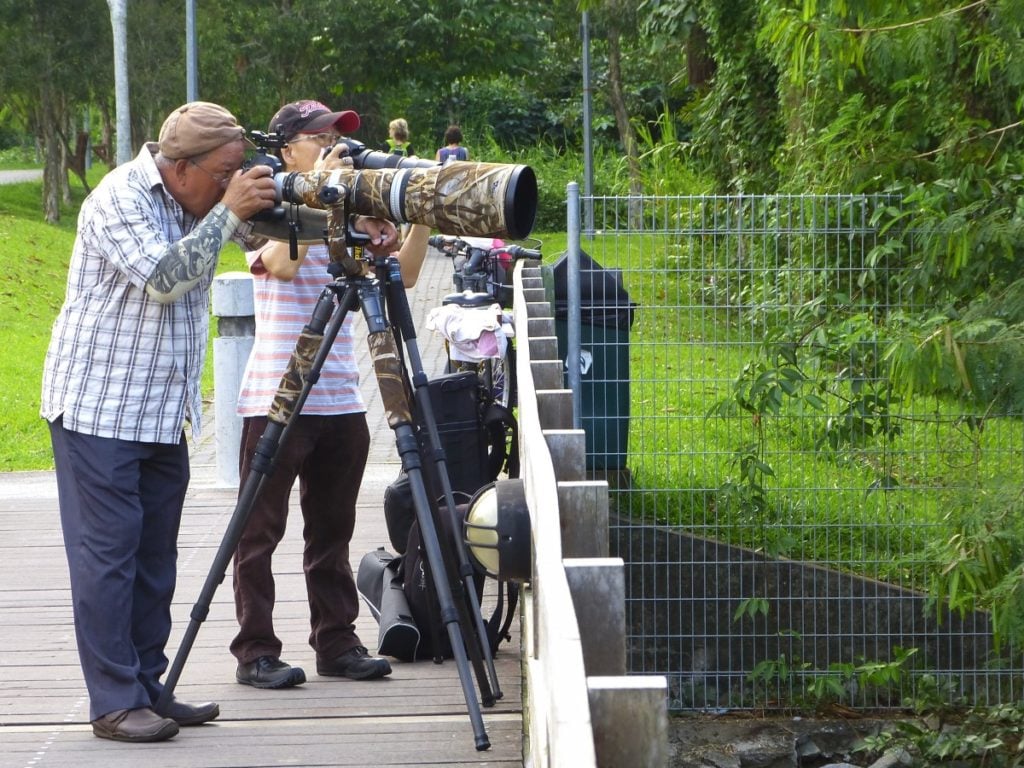
Airbnb’s official policy states that cameras are allowed in common areas but ONLY if they’re fully disclosed beforehand so guests can make an informed booking decision.
But their policy deff doesn’t allow for secret cameras, and unfortunately, some particularly sick hosts have been known to place them in disturbing areas such as private rooms and bathrooms.
What Should You Do?
When you arrive at your Airbnb, get searching!
Check all outlets for any suspicious plugs that could be hiding a camera, particularly in your bedroom and bathroom. You can also shine a bright light on smoke detectors or other seemingly innocuous items to see if any tell-tale signs of a camera pop out.
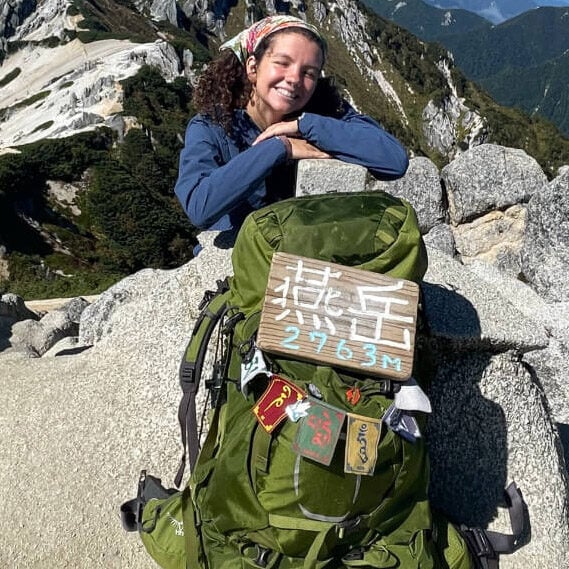
We’ve tested countless backpacks over the years, but there’s one that has always been the best and remains the best buy for adventurers: the broke backpacker-approved Osprey Aether and Ariel series.
Want more deetz on why these packs are so damn perfect? Then read our comprehensive review for the inside scoop!
View on OspreyFinal Thoughts on Airbnb Scams
Over the last few years, the vacation rental site has been in the headlines quite a bit and received rather a lot of negative press on account of these episodes. You can find stories about Airbnb scams all over the web.
In 2019, Airbnb’s CEO stated that they planned to verify all listings, but at the time of writing, there doesn’t appear to be an update on this.
But where there’s a will, there’s a way. And scammers can be determined. This is a battle Airbnb will have to keep on fighting and keep on investing seriously in.
So, like we say, it always pays to travel with travel insurance that offers Vacation Rental Cover. The good people at Faye now offer this so hit them up for a quote. As for you: keep your eyes open, stay aware and keep traveling safely!
Updated November 2022 by Samantha Shea
Buy Us a Coffee!
A couple of you lovely readers suggested we set up a tip jar for direct support as an alternative to booking through our links, since we’ve decided to keep the site ad-free. So here it is!
You can now buy The Broke Backpacker a coffee. If you like and use our content to plan your trips, it’s a much appreciated way to show appreciation 🙂









